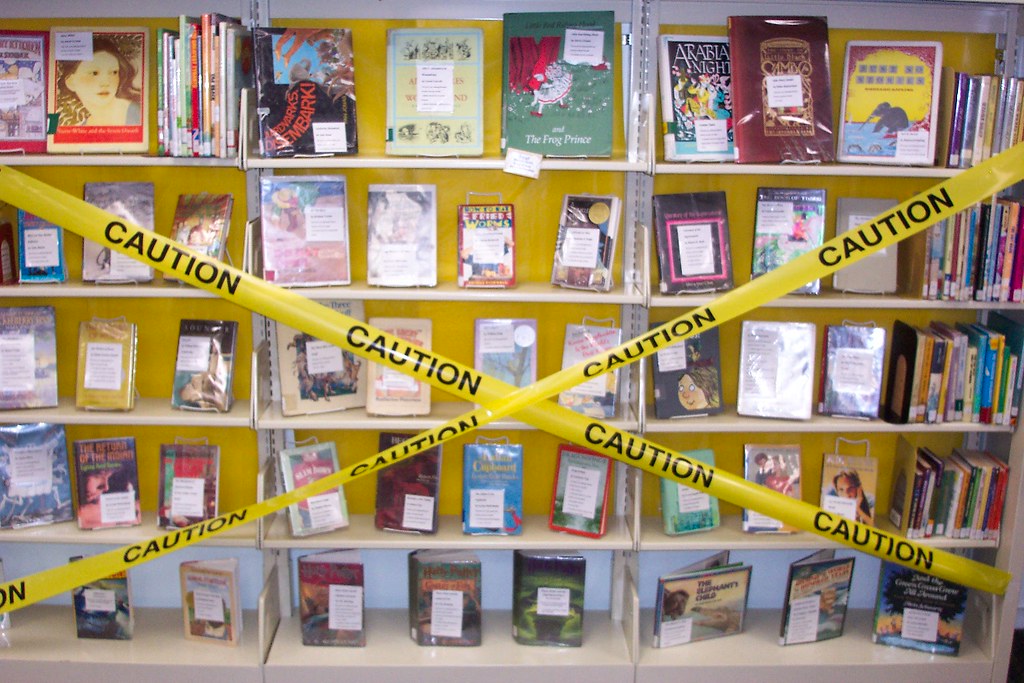While book banning has become a well-established controversy over the last few years, its origins might date further back than people think.
The first book banned in the United States was New English Canaan by Thomas Morton. It was viewed as unfavorable by the Puritan Government, and their solution was to make it inaccessible. This happened in 1637. And now, roughly 387 years later, the list has grown to thousands of banned books. The number isn’t known exactly; we know it keeps increasing year over year, title over title.
As one might guess from these statistics, book bans are rapidly becoming more and more common. Books that deal with race, gender, politics, assault, abuse, discrimination, and LGBTQ topics are often the biggest targets. At the top of the list, The Handmaid’s Tale, Looking for Alaska, To Kill a Mockingbird, The Perks of Being a Wallflower, and The Kite Runner are all notorious for being challenged.
Statistics show that the bans are increasing year over year, with the 2023-2024 school year seeing the most bans out of any year previously. According to PEN America, there were over 4,000 unique titles challenged. If we continue this trend, the 2024-2025 school year might see a record number of banned books. One of the top most banned books of 2023-2024 is Nineteen Minutes by Jodi Picoult. It details a school shooting, but it was banned for other content that was thought to be explicit.
Don’t be mistaken; this trend of book banning isn’t a far away thing that doesn’t touch the NA bubble. In North Allegheny during the (what year)-2023- school year, Angie Thomas’s The Hate U Give came under fire. It was fought for and is still a part of the 9th grade curriculum in NA. This was not a fast or easy fight.
To try and ban or challenge a book, first, a dissatisfied community member has to talk to the teacher or librarian who’s housing the book. Then they can issue a formal complaint under code 105.1 and 109. The Assistant Superintendent then creates a committee (made up of community members, librarians, principals, teachers, etc.), and the committee reads and reviews the book based on the complaint that was made. They vote on what should be done with the book, and the Assistant Superintendent then presents these findings to the board. The board then provides their vote on what should be done.
This is a weighty choice to make, and there are arguments on all sides of book banning. Some believe it’s a necessary measure to protect kids from content unsuitable for their age. Others see it as oppression and censorship. As you might assume, this makes it a hot topic and a cause for a lot of tension. Deciding to try and ban a book impacts everyone involved. And not that long ago, Pine Richland went through this difficult process.
The novel Angel of Greenwood was the cause of all the controversy. This book by Randi Pink details the Tulsa Race Massacre. After months of deliberation and hours long meetings, Pine Richland ultimately ended up rejecting the book for ninth grade curriculum, but kept it in the libraries. This turned out to be a preview of the policy passed on March 17th, which gave the Board the final say over any book removals in the school. This means that the Superintendent doesn’t have much of a say in this issue any longer. Again, the community was divided. Some appreciated the decisive efforts to cleanse the libraries, and others were upset at the thought of the virtually unchecked power. Watch part of the meeting here.
Students also have a lot of thoughts on this topic. This isn’t surprising, as issues of controversy can alter curriculum and the learning paths.
Abby Hartwell, a freshman here at NAI, said, “Stopping the spread of book banning opens people’s minds.”
Daisy Lucas, another freshman, said, “Book banning limits the perspective of people and makes it easier for them to create generalizations or be generally uneducated. It also limits the speech of the author.”
Freshman Rose Karavlan said, “I think it’s truly horrifying (the selection of books being banned). Especially the ones that tell us about the horrors of the past. The Hunger Games, How to Kill a Mockingbird, Lord of the Flies. These are all important issues of society. They deserve to be taught well—not banned.”
While not everyone shares the same views, this outcry to decrease censorship and increase awareness is very common. Nobody knows how book banning will continue sweeping the country or even local areas, but it’s definitely something that the public should be aware of.



